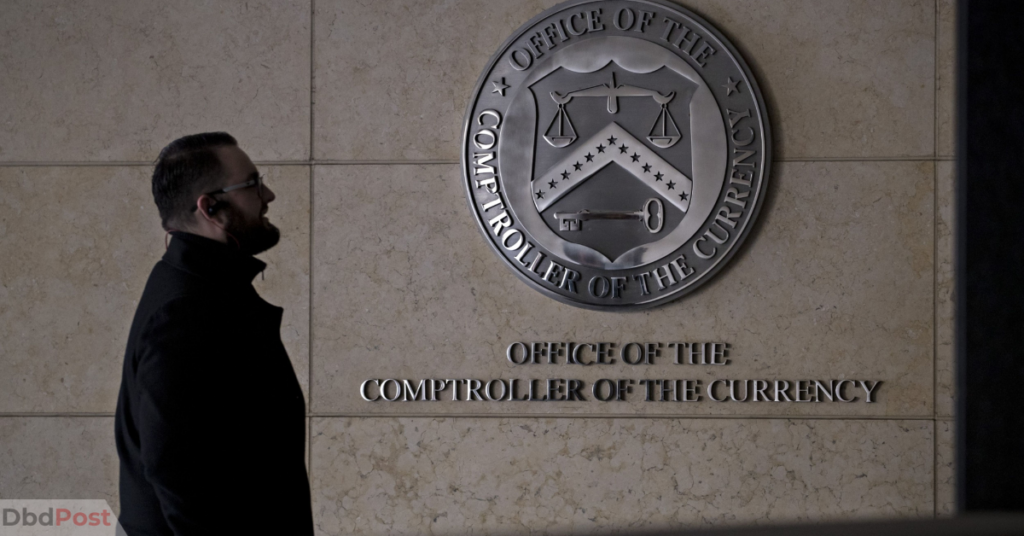The Office of the Comptroller of the Currency (OCC) has announced enforcement actions against three former Wells Fargo executives. These actions address their roles in the bank’s widespread misconduct in sales practices.
This case highlights serious governance failures within one of America’s largest financial institutions.
Claudia Russ Anderson, David Julian, and Paul McLinko faced significant penalties. Their unsafe practices allowed unethical sales behavior to flourish.
The OCC’s decision underscores the importance of personal accountability in financial oversight.
The former Community Bank Group Risk Officer Claudia Russ Anderson faced the harshest penalties.
Investigations revealed that she failed to challenge the bank’s problematic incentive programs, encouraging employees to engage in unethical behavior to meet aggressive sales targets.
Anderson did not implement adequate risk controls. She downplayed the gravity of the misconduct, enabling it to persist.
Additionally, she misled the OCC by providing false or incomplete information during its 2015 examinations.
For her role, Anderson received a prohibition order. It bars her from working in the banking industry. She was also fined $10 million, one of the most significant individual penalties imposed by the OCC.
David Julian, the former Chief Auditor, also failed in his duties. He did not ensure that audits were robust enough to detect misconduct, allowing unethical practices to go unnoticed and unaddressed.
Paul McLinko, the former Executive Audit Director, faced similar criticisms. He failed to maintain professional independence from the Community Bank. It compromised his ability to conduct unbiased audits.
Julian and McLinko received cease-and-desist orders, which prevented them from similar future failures in oversight roles. Julian was fined $7 million, while McLinko faced a $1.5 million penalty.
Lessons Learned from the Wells Fargo Scandal
The Wells Fargo sales scandal revealed serious flaws in corporate governance.
Under pressure to meet sales quotas, thousands of employees engaged in unethical behavior, severely damaging the bank’s reputation and harming countless customers.
The OCC’s actions highlight the importance of holding individuals accountable. Between 2020 and 2022, the OCC pursued penalties against 11 former executives.
Eight cases concluded with combined penalties exceeding $43 million.
Acting Comptroller Michael J. Hsu emphasized the significance of individual responsibility. These penalties send a clear message: oversight failures will face severe consequences.
Regulators aim to deter similar misconduct in the future.
Wells Fargo’s failures serve as a cautionary tale for the entire industry. Aggressive sales goals must not override ethical standards, and financial institutions must prioritize governance, transparency, and customer trust.
Moving Forward in the Banking Industry
While the OCC’s actions mark progress, challenges remain. Restoring public confidence in Wells Fargo requires sustained effort, and leadership must demonstrate a renewed commitment to ethical practices.
The bank has already made changes. New leadership and stricter policies aim to prevent future misconduct. However, the road to full rehabilitation will take time.
The OCC’s penalties remind other institutions that executives must take their oversight roles seriously. Lapses in governance and accountability will not go unnoticed.
These actions represent more than just penalties. They are part of a broader movement toward transparency in banking. By addressing these failures, regulators hope to rebuild trust in the financial system.
Wells Fargo’s story underscores the importance of ethical leadership. It reminds financial institutions to prioritize integrity over short-term gains, and the consequences of failing to do so are now clear.
The lessons from this scandal will remain relevant as the industry moves forward. Strong governance and accountability are essential. Only through these measures can trust in the financial system be restored.
- 107shares
- Facebook Messenger
About the author
Mohamed Yousuf is a Business and Finance Correspondent at DbdPost.com, delivering in-depth insights and analysis on global market trends, economic developments, and financial strategies. His expertise helps readers stay informed and make sound decisions in an ever-evolving financial landscape.





